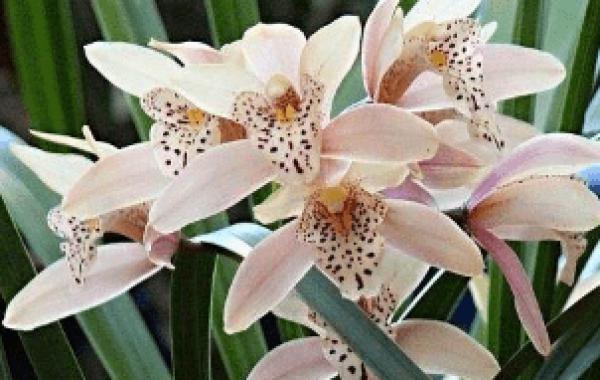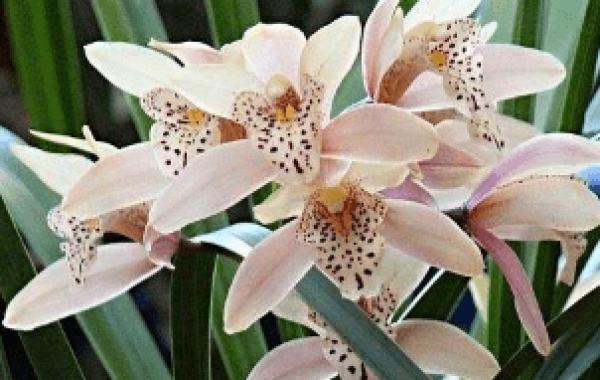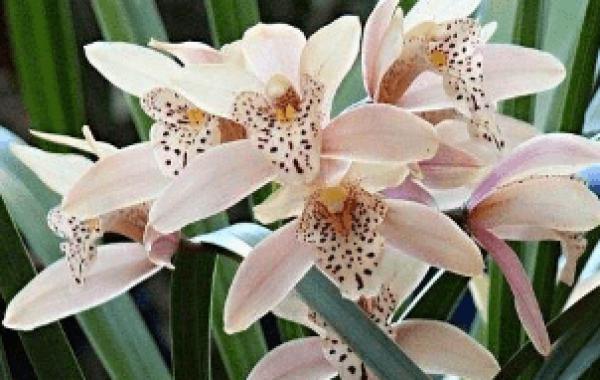What are the occurrence and control techniques of common diseases and insect pests in orchids?

The occurrence and control technology of common orchid diseases and insect pests is a very troublesome problem. Today, I would like to share with you what are the occurrence and control techniques of common orchid diseases and insect pests.
What are the occurrence and control techniques of common diseases and insect pests in orchids:
In the process of orchid cultivation, orchids are often harmed by diseases and insect pests, which not only reduces the ornamental value, but even dies.
1. Anthrax. The disease is a common disease of orchids, which mainly harms the leaves. Black dots are produced on the disease spots in the later stage, which eventually leads to withered and yellow leaves. The disease often occurs in May-June, in the Meiyu season or in the years with more autumn rain or typhoons from September to October. Prevention and treatment: ① cut off the disease and burn the remains in time. ② improved the way it was watered by slowly injecting water from the edge of the flowerpot. After the new leaves of ③ sprouted in winter, spray Bordeaux liquid (1JV 140) 1 Mel twice, spray 50% carbendazim 500 Mel 600 times liquid at the initial stage of the disease, and at the same time strengthen ventilation and light transmission to avoid foliar spray.
2. Leaf blight. The leaves of orchids were mainly damaged by small reddish-brown spots at the beginning, and then rapidly expanded into oval or round black-brown spots, with more disease spots, and the leaf tissue between the disease spots turned green and turned yellow and withered. Prevention and treatment methods: ① diseased leaves and remnants were burned centrally. ② should pay attention to ventilation and light transmission, prevent excessive watering, and avoid direct spraying of plants. ③ can be sprayed with 50% topiramate 600 mol 800 times solution. Once every 10 days or so, spray 3 Murray for 4 times.
3. White silk disease. One of the major diseases of the genus Cymbidium, caused by. It is easy to occur in the high temperature and rainy season, which often occurs in May and June, with the peak of the disease in July and August. Prevention and treatment methods: ① timely diseased leaves, diseased plants, diseased points, can be mixed with lime; before setting the plant, wet the basin soil with 1000 times solution of 30% soil seedling dewatering agent. In the early stage of ②, 500 times of chlorothalonil can be used to spray leaves and roots.
4. Scale insects. Shield scale and pink scale are the most common. The occurrence period is from April to October, and it occurs occasionally in winter. Its fecundity is extremely strong. Many generations can occur in a year and generations overlap, and it is serious from May to October. Prevention and treatment: when a small amount of ① occurs, you can use a soft brush to remove it, then rinse it with water. When there is more ②, 1000 times of the emulsion can be sprayed during the peak incubation period. When spraying, both the front and back of the leaves should be sprayed, and the leaves should be sprayed 4 times in a row, each time with an interval of 5 Murray for 7 days, then it will be basically extinct.
5. Red spider. Its reproductive ability is strong, the harm is very serious, and it is easy to occur in the period of high temperature from June to August.
Prevention and control methods: the number of ① is small, can be removed with a brush or a small brush. Most of ② were killed with 1000 times of dicofol. ③ local method can ignite mosquito-repellent incense, put it in the basin of diseased plant, and cover it with plastic bag. After smoking for 1 hour, both eggs and adults are killed, and the plant is not affected.
Related
- Is the orchid suitable for indoor use? Is it good for the body?
- How to prevent the empty root of orchids?
- What to do after the crab claw orchid is withered?
- Why are the leaves of orchids always yellow? Fertilizing and watering.
- Can the root of the gentleman orchid be saved if it is rotten?
- Diagnosis and treatment of cotton-blowing beetle insects in Cymbidium
- There is a way for a gentleman's orchid to rot.
- What is the most suitable temperature and humidity for the orchid?
- How to raise a gentleman's orchid? Cultivation techniques of Cymbidium
- How to prepare the nutritive soil for the cultivation of Cymbidium



